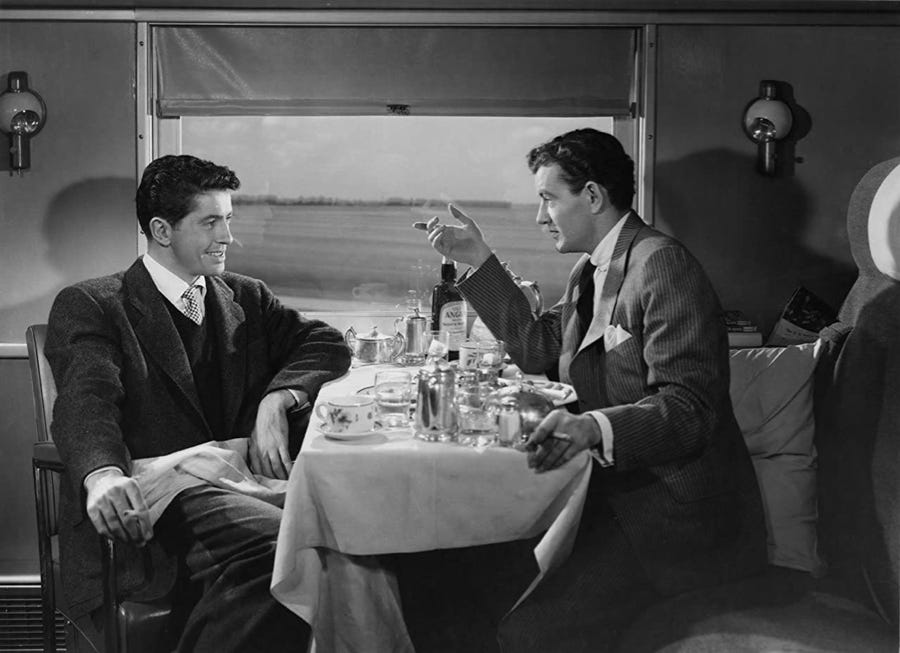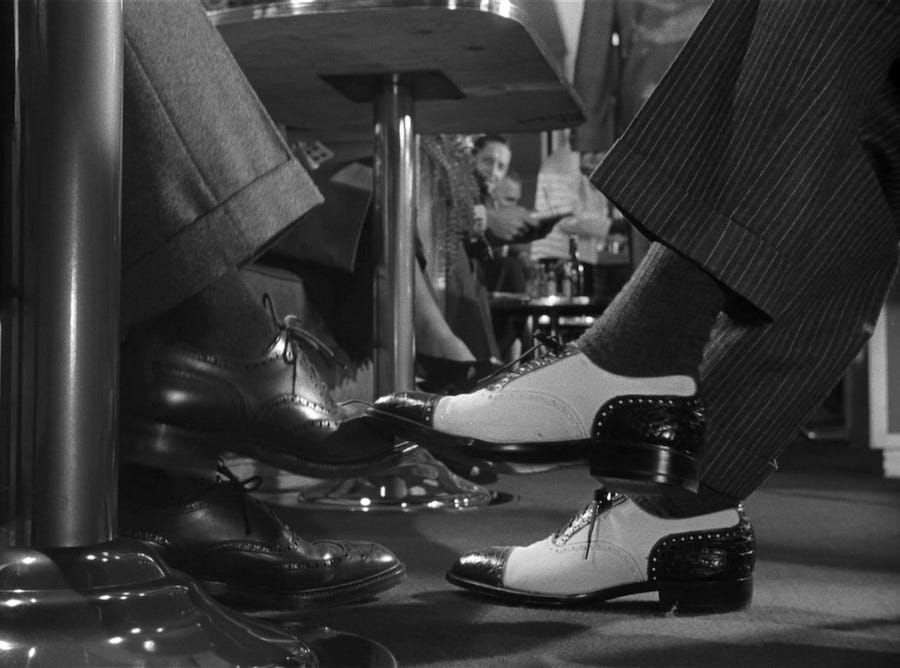Strangers on a Train (1951)
"Like you do my murder, and I do yours..."
The East Coast of America would have been a very nice place to live. In the late 1930s and 1940s— and if you were rich. The streamlined Deco cars, the Tom and Jerry refrigerators (a lonely chicken and a bottle of milk), the clapboard farmhouses, dry stone walls, hunting prints, chintz, tennis courts, leather-lined libraries (globes) and Anglicised transatlantic accents. All mod cons with an Anglo-American country house vibe. And again, travelling from New York to Washington D. C., the train was a civilised way to go. Those wonderful cathedral-like city stations, the double-decker coaches of pressed aluminium, with observation decks to watch from as small-town America sped by. The white picket fences and clapboard houses, the New England woods, fields and farms with their red Dutch barns and water-pump windmills, and that distinctive clang-clang-clang bell sound as the train rumbled through a level crossing. I like it a lot.
Hitchcock's film is based on Patricia Highsmith's first book, published in 1950. As you've probably gathered, I'm a huge fan of Highsmith, and three Highsmith film adaptations have already made it to these pages: Rope (1947), The Talented Mr. Ripley (1999) and Deep Water (2022), with more films to follow. The plot is relatively straightforward (put it this way, yours truly grasped it without difficulty). Guy Haines (Farley Granger), a well-brought-up, mild-mannered amateur tennis player (my grandmother might have described him as 'a nice young man'), meets Bruno Anthony (Robert Walker), a psychopathic spiv on the Washington to New York Express. You know he's a spiv ‘cos he's wearing co-respondent shoes (according to my father, the mark of a cad, which explains why my father wears his own pair to read the lesson in church) and one of those dreadful 50s kipper ties with 'BRUNO' written across it in swirly writing.
Bruno then suggests, not unreasonably, to murder Guy's estranged wife (up the duff by another man) if, in return, Guy murders his father, who conveniently dwells in a gloomy Cluedobethan Mock Tudor ‘mansion'. It's a bit like playing at doctors and nurses in the nursery: “If you show me yours, I'll show you mine.” Interestingly, critics also detect a snippet of homo-eroticism between the two men (the film was made at the time of McCarthyism), which I have to confess completely passed me by. But Bruno, undoubtedly, has some sort of a weird hold over Guy. Farley Granger’s Guy is spot on. Even though he immediately identifies Bruno as a bad 'un, he's too well-mannered, too well-brought-up to tell Bruno to “f***k off”. Like a decent, naive, well-meaning middle-class Brit getting ripped off by a street hustler in Marrakesh.
Keep reading with a 7-day free trial
Subscribe to Luke Honey's WEEKEND FLICKS. to keep reading this post and get 7 days of free access to the full post archives.




